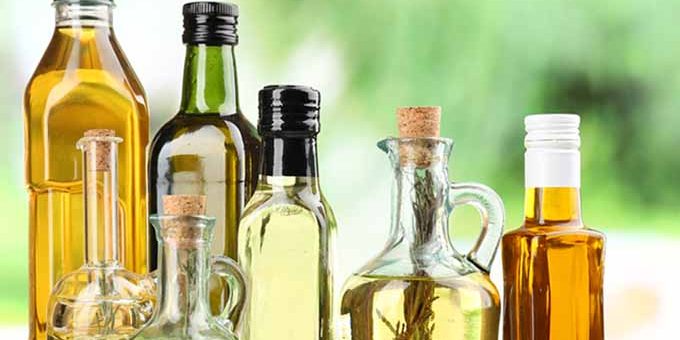Dietary fat and cholesterol
Dietary fat also plays a major role in your cholesterol levels. Cholesterol is a fatty, wax-like substance that your body needs to function properly. In and of itself, cholesterol isn’t bad. But when you get too much of it, it can have a negative impact on your health. As with dietary fat, there are good and bad types of cholesterol.
- HDL cholesterol is the “good” kind of cholesterol found in your blood.
- LDL cholesterol is the “bad” kind.
- The key is to keep LDL levels low and HDL high, which may protect against heart disease and stroke.
- Conversely, high levels of LDL cholesterol can clog arteries and low HDL can be a marker for increased cardiovascular risk.
Rather than the amount of cholesterol you eat, the biggest influence on your cholesterol levels is the type of fats you consume. So instead of counting cholesterol, it’s important to focus on replacing bad fats with good fats.
Good fats vs. bad fats
Since fat is an important part of a healthy diet, rather than adopting a low-fat diet, it’s more important to focus on eating more beneficial “good” fats and limiting harmful “bad” fats.
Healthy or “good” fats
Monounsaturated fats and polyunsaturated fats are known as the “good fats” because they are good for your heart, your cholesterol, and your overall health. These fats can help to:
- Lower the risk of heart disease and stroke.
- Lower bad LDL cholesterol levels, while increasing good HDL.
- Prevent abnormal heart rhythms.
- Lower triglycerides associated with heart disease and fight inflammation.
- Lower blood pressure.
- Prevent atherosclerosis (hardening and narrowing of the arteries).
Adding more of these healthy fats to your diet may also help to make you feel more satisfied after a meal, reducing hunger and thus promoting weight loss.
Monounsaturated fat – good sources include:
- Canola, peanut, and sesame oils
- Nuts ( peanuts, macadamia, hazelnuts)
- Peanut butter
Polyunsaturated fat – good sources include:
- Sunflower, sesame, and pumpkin seeds
- Flaxseed
- Walnuts
- Soybean oil
- Soymilk
The power of omega-3s
Omega-3 fatty acids are a type of polyunsaturated fat and are especially beneficial to your health. There are different types of omega-3s: EPA and DHA are found in fish and algae and have the most health benefits, while ALA comes from plants and is a less potent form of omega-3, although the body does convert ALA to EPA and DHA at low rates.
Research has shown that a diet rich in omega-3s may help to:
- Prevent and reduce symptoms of depression, ADHD, and bipolar disorder
- Protect against memory loss and dementia
- Reduce the risk of heart disease, stroke, and cancer
- Ease arthritis, joint pain, and inflammatory skin conditions
- Support a healthy pregnancy
- Battle fatigue, sharpen your memory, and balance your mood
| The Best Sources of Omega-3s |
| Vegetarian sources of omega-3s (high in ALA) |
|
Choosing healthy oils
Vegetable oils lower LDL cholesterol and triglycerides, and raise HDL or good cholesterol. Oils such as corn, sunflower, safflower, and soybean contain omega-6, a type of polyunsaturated fat that may help to reduce insulin resistance and inflammation.
- Use naturally occurring, unhydrogenated vegetable oils such as olive, canola, safflower, and sunflower oil whenever possible.
- Less processed oils, such as cold-pressed oil, contain potentially beneficial phytochemicals.
Tips for adding more healthy fats to your diet
Instead of obsessively counting fat grams, aim for a diet rich in a variety of vegetables, fruit, nuts, and beans, with two or more weekly servings of fatty fish, moderate amounts of dairy, small amounts of red meat, and only occasional fried or processed meals.
This might mean replacing fried chicken with grilled chicken, swapping out some of the red meat you eat with other sources of protein such as fish, chicken, or beans, or using olive oil rather than butter.
Try to eliminate trans fats from your diet. Check food labels for trans fats. Limiting commercially-baked goods and fast food can go a long way.
Limit your intake of saturated fats by replacing some of the red meat you eat with beans, nuts, poultry, and fish, and switching from whole milk dairy to lower fat versions. But don’t make the mistake of replacing saturated fat with refined carbohydrates and sugary foods.
Eat omega-3 fats every day. Include a variety of fish sources as well as plant sources such as walnuts, ground flax seeds, flaxseed oil, canola oil, and soybean oil.
Cook with olive or canola oil. Use olive oil for stovetop cooking rather than butter, stick margarine, or lard. For baking, try canola oil.
Reach for the nuts. You can add nuts to vegetable dishes, use them instead of breadcrumbs on chicken or fish, or make your own trail mix with nuts, seeds, and dried fruit.
Dress your own salad. Commercial salad dressings are often high in unhealthy fat or added sugars. Create your own healthy dressings with olive, flaxseed, or sesame oils.







